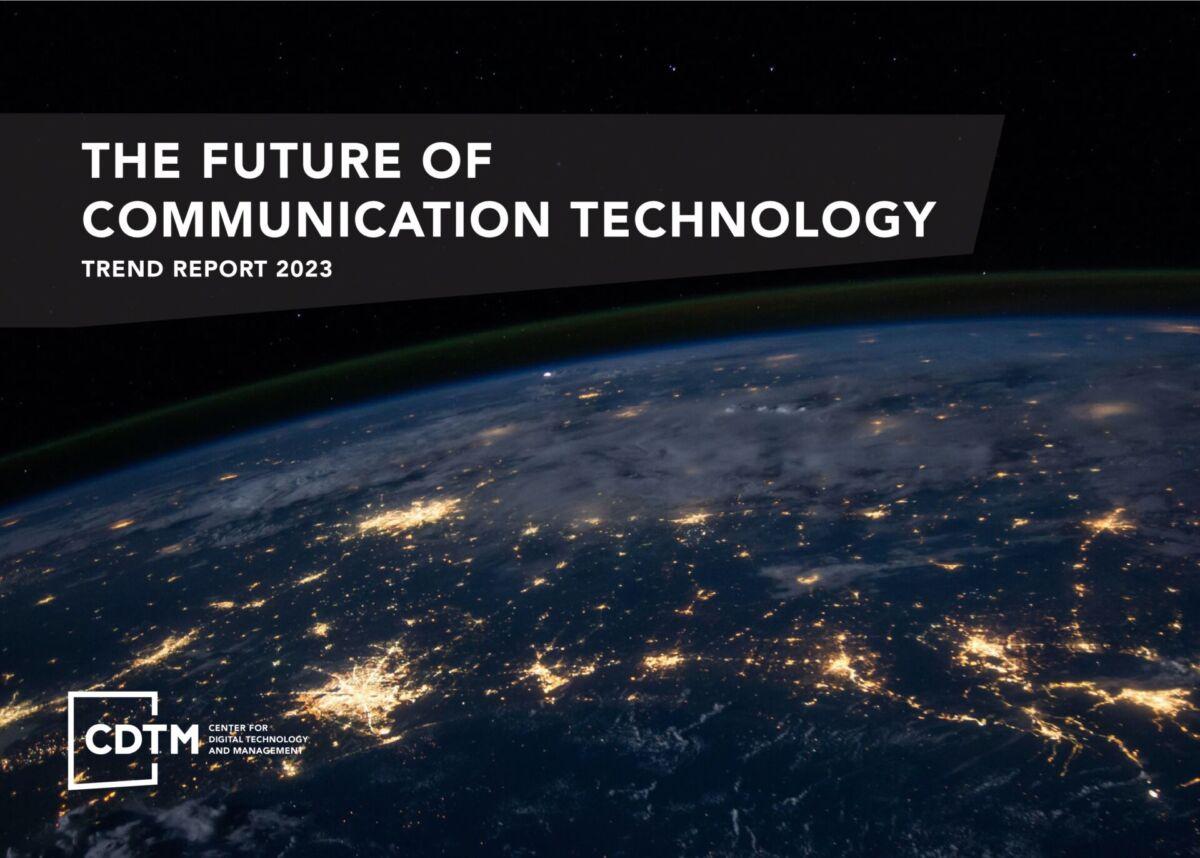The Future of Communication Technology
Class: Spring 2023 Munich

Abstract
The BMBF Research Hub 6G-life is a university-based research project committed to shape the communication landscape of the future aiming at the upcoming 6th generation mobile communication system. 6G research has just started and 6G deployment is expected to begin in the year 2030. Enough time to create significant impact! One objective of the pro-ject is to strengthen the technology sovereignty in Germany. In this way, the project does not only strive for scientific research excellence to impact the technology development for 6G, but also to educate the engineers for tomorrow and to lay the ground for new startups in Germany to be able to bring the know-how to the market. Therefore, 6G-life has teamed up with CDTM to develop and execute entrepreneurial education in the area of 6G. This trend seminar on “the future of communication technology” where 6G-life took the project partner role is one important milestone of the collaboration with CDTM in 6G-life.
Trends
Technology Trends
- Internet of Bio-Nano
- Things Brain-Computer Interfaces
- Quantum Technologies
- Extended Reality
- Multimodal Artificial Intelligence
Societal & Environmental Trends
- Towards Trustworthy Communication
- Mental Health Is on People’s Mind
- Digital Equity and Inclusion
- Making Every Street Wall Street
- More Sustainability Demanded
Legal & Political Trends
- Shaping Internet-Based Communication
- The Rising Importance of Standards
- Regulating Emerging Frontiers
- Securing Domestic Communication Infrastructure
- Data Privacy
Economic Trends
- Increasing Financial Instability
- Looming Risk of Geoeconomic Confrontations
- Rise of Open Talent Employment
- Growing Decentralization
- Accessing the Global Economy
Business Models Trends
- Intelligent Extraterrestrial Routing
- A Hospital Inside the Body
- Data-Ownership-as-a-Service
- Real-Time Digital Twin
- Connecting Machines in Smart Factories
Report
Biomedical Technologies: Biomedical engineering is a growing and dynamic research field encompassing many technologies, including those re- lated to neuroscience and bionanotechnology. On the one hand, neuroscience technologies investigate the nervous system with the aim of improving human capabilities, includ- ing communication. By exploring how the brain works, neu- roscience has the potential to develop new communication technologies such as BCI and telepathy. On the other hand, bionanotechnology involves studying and manipulating bio- logical systems and structures, such as proteins and DNA, at the nanometer scale. Such technologies aim to develop new treatments for diseases. Moreover, they enable new forms of communication at the nanoscale level, like molecular com- munication, which can facilitate interactions between nan- odevices within the body or the environment.
Cybersecurity & Privacy: The topic of cybersecurity and privacy remains a significant driver that shapes technological advancements and soci- etal changes. With the increasing dependence on technol- ogy and the digitalization of most aspects of our lives, the risks associated with cyber threats and data breaches have become higher. In the same vein as cybersecurity, privacy concerns are also a significant part of this driver as people become more aware of their digital footprint and the ways in which their personal data is collected, stored, and used. In response, governments, businesses, and individuals will pri- oritize privacy protection, leading to the development of new privacy-enhancing technologies and regulations to protect individuals’ rights while enabling the benefits of data sharing.
Connectedness in Classes: Advanced biotechnology enhances human communication and improves personal health while being highly secure from hacking and cyberattacks. However, only the wealthy can ac- cess it, while the poor are left behind.
Secure Data, Fragile Health: This scenario describes a future in which society decides to abandon the pursuit of biomedical technologies altogether due to the widespread influence of conspiracy theories and the fear of misinformation. This scenario results in a world with robust data protection but diminished healthcare prog- ress.
Societal Descendance: Biotech advancements were banned after a crisis caused by brain-computer interface hacking. People’s beliefs in cyber- space became polarized, with some embracing siloed life- styles while others remained connected, widening the digital divide into a social one.
Connected, but Compromised: This scenario portrays a world in which biotech and cyber- netic implants are widely used but also vulnerable to cyber- attacks. Even cybersecurity experts feel terrified by the loss of safety and privacy. Nevertheless, they remain dependent on cybernetics due to their convenience and health benefits.
Exploration
1. Pericule - Helps Response Teams to Make Better and Faster Decisions in Emergencies
2. HoloWonders - Immersive Cultural Experiences
3. Sensetrials - Advancing Clinical Research With Decentralized and Real-Time Patient Data Management
4. Sensurity - Enhanced Security for Public Safety via Smart Network Sensing
5. MedicalReach - Medical Care - Where It Is Needed Most
Partners
